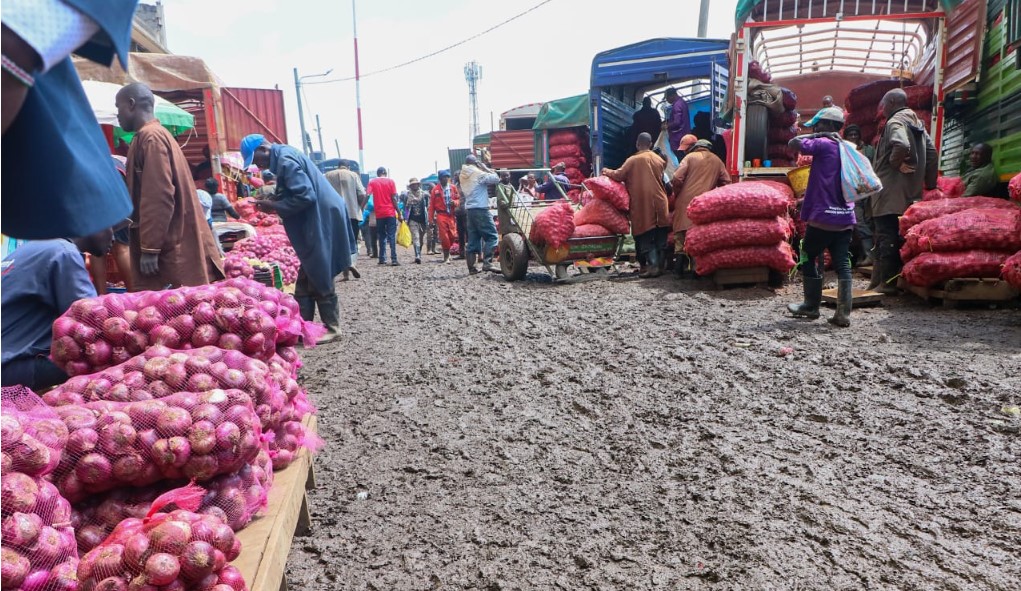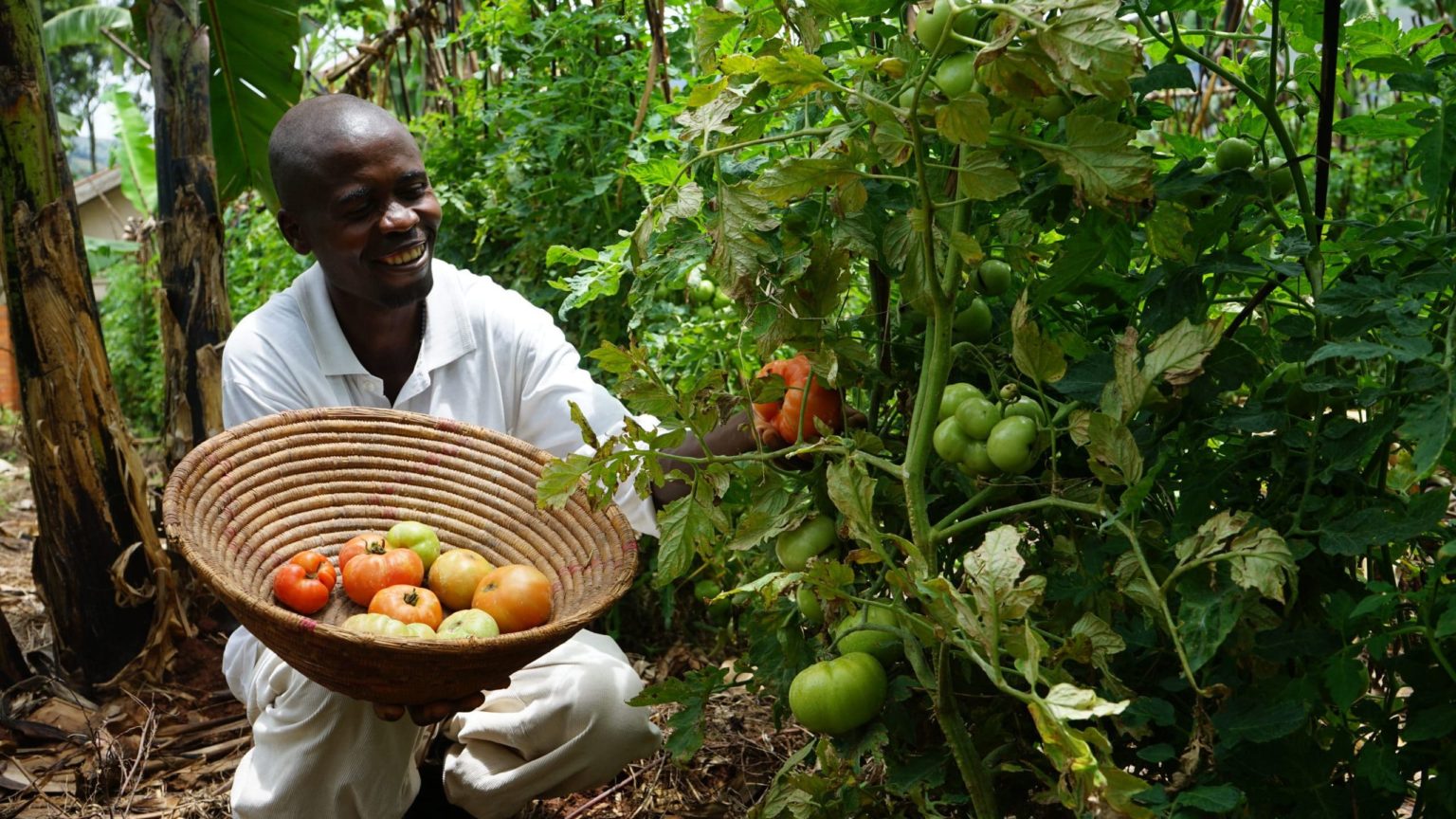Why Marikiti onion traders are not keen to move to Kangundo Road Market

The traders argue that the many lorries bringing onions and pineapples from Tanzania cannot be accommodated at the yet-to-be-occupied Kangundo Road Market.
Hundreds of onion traders at the Wakulima fresh produce market in Nairobi, popularly known as Marikiti, are opposed to their relocation to the newly-built Kangundo Road Market, which they say is not spacious enough for the many lorries bringing onions into the country from Tanzania.
When The Eastleigh Voice visited Marikiti Market on Tuesday morning, hundreds of lorries unloading onions from Tanzania were parked inside the market with offloaders arranging sacks of onions ready for sale.
More To Read
- Life behind the load: The hard road travelled by mkokoteni pushers
- From humble beginnings: Sadiq Gabow carves niche as Eastleigh's sole full-time Marikiti trader
- Explainer: The process of impeaching a deputy president in Kenya
- Sakaja fires back at Gachagua on Marikiti market relocation plans
- DP Gachagua takes 'Marikiti war' to Nairobi Governor Sakaja's doorstep
- Why Sh800m market on Kangundo Road remained unused for six years
The traders revealed that Kenyans prefer Tanzanian onions as opposed to those from Kenya because of their quality. They said that farmers from Tanzania do not use pesticides and herbicides in their farming like their Kenyan counterparts.
Kennedy Odhiambo, who sells onions and pineapples, said Tanzanian farmers prefer not to use chemicals during farming.
"Kenyan onions take three months on the farm while Tanzanian onions take five months. In addition to that, we hear that the neighbouring country does not tolerate genetically modified seeds," said Odhiambo.
The traders argue that the many lorries bringing onions and pineapples from Tanzania cannot be accommodated at the yet-to-be-occupied Kangundo Road Market where the Nairobi County government has been seeking to have them relocated.
"During high crop season in neighbouring countries like this, we receive hundreds of lorries with fresh produce. All these vehicles and traders will not fit in the Kangundo Road Market," said Odhiambo.
The traders are currently selling a kilo of onions from Tanzania at Sh50 while those from Kenya are selling at Sh40.
According to the Food and Agriculture Organisation 2014 report, about 50 per cent of the red onions in Kenya are imported from Tanzania. The Kenya Onion Industry Outlook projects that onion consumption will increase to 148,000 tonnes by 2026, up from 140,000 in 2021.
The influx of onions from Tanzania is seen as a huge relief to households and the hospitality industry in Nairobi and across the country who have relied on onions for food preparation.
In April this year, consumers in Nairobi were forced to dig deeper into their pockets due to an increase in the price of onions.
A kilo of red dry onions at Marikiti, Gikomba and Ruai markets in April was retailing between Sh150 and Sh170.
Mwangi Gikonyo, a trader at Wakulima Market said a kilo of onions, now selling at Sh50, was previously going for Sh170.
Gikonyo said he gets the onions from Kajiado, Naivasha and Nyeri.
He said onions from Tanzania have always been a reprieve because their arrival into the market usually brings the prices down.
Kenya National Bureau of Statistics consumer price indices and inflation rates for March say prices of leeks and bulb onions have increased by 11.1 per cent from February.
The matter of relocating the Marikiti traders to the Kangundo Road Market has been contentious, leading to a court case, with the traders in September getting a reprieve from a planned eviction by the city’s authorities.
Milimani High Court Judge Bahati Mwamuye on Friday halted the eviction order issued by Nairobi City County, which had required traders to move to the New Wakulima Market on Kangundo Road.
On September 10, 2024, City Hall had given the traders a notice to relocate.
But Judge Mwamuye issued an order preventing the county from evicting the traders or disrupting their operations at the Wakulima Market in the CBD until the matter is resolved.
Top Stories Today
Reader Comments
Trending











































